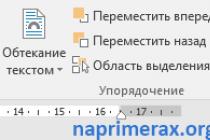What is it
DuckDuckGo is quite famous search system open source. The servers are located in the USA. In addition to its own robot, the search engine uses the results of other sources: Yahoo, Bing, Wikipedia.
The better
DuckDuckGo positions itself as a search engine that provides maximum privacy and confidentiality. The system does not collect any user data, does not store logs (no search history), use cookies as limited as possible.
DuckDuckGo does not collect or share personal information from users. This is our privacy policy.
Gabriel Weinberg, founder of DuckDuckGo
Why do you need it
All major search engines try to personalize search results based on the data about the person in front of the monitor. This phenomenon is called the "filter bubble": the user sees only those results that agree with his preferences or that the system considers as such.
Forms an objective picture that does not depend on your past behavior on the web, and eliminates thematic Google Ads and Yandex based on your queries. DuckDuckGo makes it easy to search for information in foreign languages, while Google and Yandex by default give preference to Russian-language sites, even if the request is entered in another language.
What is it
not Evil is a system that searches by anonymous network Tor. To use it, you need to go to this network, for example by launching a specialized one.
not Evil is not the only search engine of its kind. There is LOOK (the default search in the Tor browser, accessible from the regular Internet) or TORCH (one of the oldest search engines in the Tor network) and others. We settled on not Evil because of the unambiguous hint of Google (just look at the start page).
The better
Searches where Google, Yandex and other search engines are closed in principle.
Why do you need it
There are many resources on the Tor network that cannot be found on the law-abiding Internet. And their number will grow as the government tightens control over the content of the Web. Tor is a kind of network within the Network with its own social networks, torrent trackers, media, trading platforms, blogs, libraries, and so on.
3. YaCy

What is it
YaCy is a decentralized search engine based on P2P networks. Each computer on which the main program module, scans the Internet on its own, that is, it is analogous to a search robot. The results are collected in common base which is used by all members of YaCy.
The better
It is difficult to say whether it is better or worse here, since YaCy is a completely different approach to organizing search. The absence of a single server and company-owner makes the results completely independent of someone's preferences. The autonomy of each node excludes censorship. YaCy is capable of searching the deep web and non-indexed public networks.
Why do you need it
If you are a supporter of open source software and the free Internet, which is not influenced by government agencies and large corporations then YaCy is your choice. It can also be used to organize searches within a corporate or other autonomous network. And while YaCy is not very useful in everyday life, it is a worthy alternative to Google in terms of the search process.
4. Pipl

What is it
Pipl is a system designed to search for information about a specific person.
The better
The authors of Pipl claim that their specialized algorithms search more efficiently than "regular" search engines. In particular, profiles are prioritized. social networks, comments, lists of participants and various databases where information about people is published, for example, databases of court decisions. Pipl's leadership in this area is confirmed by ratings from Lifehacker.com, TechCrunch and other publications.
Why do you need it
If you need to find information about a person living in the United States, then Pipl will be much more effective than Google. The databases of Russian courts are apparently inaccessible to the search engine. Therefore, he does not cope with the citizens of Russia so well.

What is it
FindSounds is another specialized search engine. Searches open sources for various sounds: house, nature, cars, people, and so on. The service does not support queries in Russian, but there is an impressive list of Russian-language tags that can be searched.
The better
The results are only sounds and nothing more. In the settings, you can set the desired format and sound quality. All found sounds are available for download. There is a pattern search.
Why do you need it
If you need to quickly find the sound of a musket shot, the blows of a sucking woodpecker, or the scream of Homer Simpson, then this service is for you. And we chose this only from the available Russian-language requests. On English language the spectrum is even wider.
Seriously speaking, a specialized service assumes a specialized audience. But what if it comes in handy?

What is it
Wolfram | Alpha is a computational search engine. Instead of links to articles containing keywords, it gives a ready answer to the user's request. For example, if you enter "compare the populations of New York and San Francisco" in English into the search form, Wolfram | Alpha will immediately display tables and graphs with a comparison.
The better
This service is better than others for finding facts and calculating data. Wolfram | Alpha collects and organizes knowledge available on the Web from a variety of fields, including science, culture and entertainment. If this database contains a ready-made answer to a search query, the system shows it; if not, it calculates and displays the result. In this case, the user sees only and nothing superfluous.
Why do you need it
If you are, for example, a student, analyst, journalist, or research scientist, you can use Wolfram | Alpha to find and calculate data related to your work. The service does not understand all requests, but it is constantly evolving and becoming smarter.

What is it
The Dogpile metasearch engine displays a combined list of search results from Google, Yahoo and other popular search engines.
The better
First, Dogpile displays fewer ads. Secondly, the service uses a special algorithm to find and show the best results from different search engines. According to the developers of Dogpile, their system generates the most complete search results on the entire Internet.
Why do you need it
If you cannot find information in Google or another standard search engine, search for it in several search engines at once using Dogpile.

What is it
BoardReader is a system for text search in forums, Q&A services and other communities.
The better
The service allows you to narrow the search field to social platforms. Thanks to special filters, you can quickly find posts and comments that match your criteria: language, publication date and site name.
Why do you need it
BoardReader can be useful for PR specialists and other media professionals who are interested in mass opinion on certain issues.
Finally
The life of alternative search engines is often fleeting. Lifehacker asked the former about the long-term prospects of such projects general director Ukrainian branch of the company "Yandex" Sergei Petrenko.

Sergey Petrenko
Former CEO of Yandex.Ukraine.
As for the fate of alternative search engines, it is simple: to be very niche projects with a small audience, therefore, without clear commercial prospects, or, conversely, with complete clarity of their absence.
If you look at the examples in the article, you can see that such search engines either specialize in a narrow but demanded niche, which, perhaps only so far, has not grown enough to be noticeable on Google or Yandex radars, or they are testing an original hypothesis in ranking. which is not yet applicable in regular search.
For example, if a search on Tor suddenly turns out to be in demand, that is, results from there will be needed at least by a percentage of Google's audience, then, of course, ordinary search engines will begin to solve the problem of how to find and show them to the user. If the audience behavior shows that the results seem more relevant to a noticeable share of users in a noticeable number of queries, data without taking into account user-dependent factors, then Yandex or Google will begin to give such results.
“To be better” in the context of this article does not mean “to be better at everything”. Yes, in many aspects our heroes are far from Yandex (even Bing is far away). But on the other hand, each of these services gives the user something that the giants of the search industry cannot offer. Surely you also know similar projects. Share with us - we will discuss.
Yandex.Market is considered to be the most heavily moderated platform. The rules get more complicated, and both buyers and sellers suffer. Where to run if you are tired of it?
Reviewter explains why Yandex.Market is losing its appeal. At the same time, we found four alternatives to the Russian aggregator.
More and more claims to Yandex.Market
In September 2018 Yandex.Market visited 17 million unique visitors. Great result, but last September there were 19 million. In general, the service is visited by 2-3 million fewer people than in previous years. This does not affect the overall picture - Yandex.Market remains the main trading platform of the Runet, allowing you to compare prices, leave reviews and, of course, buy.
With the development of the site, old "sores" are more and more visible, which the service has not yet resolved. Perhaps because of them, 2 million people left.
 Advertising algorithms slip what needs to be sold, not what the user is looking for. Market.yandex.ru screenshot
Advertising algorithms slip what needs to be sold, not what the user is looking for. Market.yandex.ru screenshot Search is still working ambiguously in Yandex.Market. The wider the search range, the worse for users. This is understandable - advertising algorithms slip products if there is even the slightest opportunity.
There are too many stores on the site. It is more difficult to stand out, and you still cannot drop prices lower than large networkers. There are also strange disputes with the administration. They periodically write about this inspecialized publications ... Fraudsters and sellers, juggling with irrelevant prices, feel comfortable in the flow of information. Complaints are not processed quickly enough.
All this makes sellers look for alternatives to Yandex.Market. It cannot be overcome by the number of visitors, but there are interesting portals with an active audience.
Google Shopping
The number of unique visitors in Russia has not been disclosed.
 Product page on the site. Screenshot google.com/shopping
Product page on the site. Screenshot google.com/shopping The design and functionality of Shopping is minimal. There is no special offers and the start page itself is just a dangling search bar. The user is prompted to enter the name or category of the product and study the issue. You also have to tinker with filters and settings.
Disadvantages of "Shopping" are compensated huge base goods and speed of work. Google's experience plays into the hands too. For example, a product rating is made up of all reviews written. Among the Russian reviews there will also be reviews in other languages. This is hard to attribute to disadvantages. Rather, it is a feature of a service that has won international recognition.
Google Shopping is suitable for those who want to see a comparison of prices in Russian and foreign stores. In this regard, the service provides a platform for scaling a business.
Tiu.ru
Unique visitors in September 2018 - 4,597,428.
 Product page on the site. Screenshot tiu.ru
Product page on the site. Screenshot tiu.ru According to the site's internal information, it contains 35 million products. For sellers, the site is convenient for customizing the catalog. After installing the product catalog, the seller needs to configure appearance store. The end result is a page optimized for search queries.
The aggregator provides two additional categories - "Products for business" and "Services". This is convenient for companies involved in repairs, leasing, freight transport, B2B, and so on. Tiu.ru offers businesses a platform for promotion and fair competition.
There are two types of custom ratings on product pages. The first is about the product itself, the second is about the seller. At the same time, the seller's rating is higher. Therefore, the seller's reputation plays a significant role.
[email protected]
Unique visitors in September 2018 - 2,146,447.
 start page of the [email protected] service. Screenshot torg.mail.ru
start page of the [email protected] service. Screenshot torg.mail.ru Aggregator of goods with a pleasant appearance. It rarely freezes, works stably on computers and mobile devices... For buyers, the functionality of the service is standard: search, price comparison, reviews and reviews from other buyers.
The advantage of "Products" is in the search algorithms, which will show first the offers of stores located in the buyer's home region. This opens up space for the operation of local retail, small manufacturers and services. Healthy policy, because seven out of ten consumers regional sellers if positive reviews are written about them. With equal ratings, people will still choose a local business.
The feedback system is arranged as usual: the user writes a text and sends it for moderation. Registered store representatives respond to customer reviews. Therefore, it is convenient to work with the opinions of users without leaving the product and store pages.
Aport.ru
Unique visitors in September 2018 - 1,763,669.
 Product page on the site. Screenshot aport.ru
Product page on the site. Screenshot aport.ru Legendary site of the late nineties. Then he was known as a search engine, but Aport lost the battle to Yandex, Mail.ru and Rambler. Now the portal has retrained into an aggregator of goods on the Internet. The current audience of "Aport" is not numerous, but active. Therefore, the site is still afloat.
In terms of functionality, the site does not stand out against the background of competitors: product comparisons, links to sellers' sites and reviews are valid. Reviews work on their own system. There are no ratings here, authors are invited to describe the product by highlighting it strengths and disadvantages.
Regardless of the marketplace, Reviewter can help you post reviews from real buyers. Topics and abstracts are agreed in advance, and reviews are not published without your approval.
They are joined by four more privacy-centered search engine concepts: DuckDuckGo, StartPage, MetaGer and eTools.
Don't want to give up on Google? Then use 7 life hacks for a quick search. Google mapping
Are other products able to compete with this market leader?
We have collected all the pros and cons for each candidate. StartPage startpage.com Advantages Excellent privacy protection, the ability to search in proxy mode Disadvantages Reduced search usability, outdated look, in general search quality is slightly inferior to Google DuckDuckGo
duckduckgo.com Benefits Good privacy protection, good opportunities automation using Bangs commands Disadvantages The servers are located in the USA, the overall search quality is lower than that of Google, not so convenient in the search Qwant
qwant.com Benefits Excellent privacy protection, servers in Europe, great views and results. Disadvantages Reduced search usability, slightly inferior in search quality to Google MetaGer
metager.de Benefits Excellent privacy protection, servers in Germany, search engine weighting Disadvantages Poor search usability, poorer search quality, old-fashioned Bing look
bing.com Advantages Stylish interface and results output, in terms of search convenience it is not inferior to Google, excellent image search Disadvantages In terms of search quality in general, it is slightly inferior to Google, no less interested in the personality of the eTools user
yahoo.com Advantages None Disadvantages Poor search experience, poorer search quality, no privacy protection Google-level search quality However, security and privacy is only one aspect of testing. The quality of the search was more interesting for us, since good results are the main task of any search engine and main reason why the whole world searches the Internet using Google and Yandex.
The first step is to end prejudice: Our test showed that Google and Yandex are not the only ones capable of delivering good search results. Testing was conducted through a laborious process with standard keywords and complex queries to find images, videos, products, and locations. Despite the fact that in the end Google provided the best results for hundreds of our test queries, competitors went head to head with it. First of all, we were pleasantly surprised by Bing, which scored 95.6 points for search quality - the best result.
The test winner, StartPage, also performed well. But it has a big drawback - it does not work with Russian-language queries. If you haven't heard of it before, you should definitely try this product as its quality is comparable to that of Google. Actually, the owners of this service are a little cunning: any requests are anonymously transferred to Google. That is, with the help of StartPage, you can continue to search through Google, but without declassifying your identity.
And yet, in our rating, StartPage is inferior to this giant in terms of its quality. The reason is that not all Google functions can be easily intercepted. For example, if you search for football cup matches, in Google you will first see a small table with all the matches, StartPage will only give you a link to external source... It also contains necessary information but not as fast as Google.
The return of metasearch engines It doesn't really have to be a step back because other services are also searching through Google. The Swiss solution eTools is a so-called metasearch engine that covers 16 other search engines, including Google and Bing. MetaGer works the same way, but ignores Google's results. However, the quality of both services is comparable because metasearch preprocesses matches. Duplicates are excluded and the results are evaluated. It only takes an extra fraction of a second compared to direct search, so the user doesn't feel any slowdown.
Interestingly, you yourself can customize the metasearch engines, that is, select the sources and their weight. The somewhat outdated look shouldn't scare you - the services do a really good job of doing their job. The only thing is to come to terms with the lack of direct information, which is not displayed by such machines. In terms of search for images, videos and products, they are also inferior to Google.
High safety standards don't always help
When it comes to security fundamentals, Google's alternatives are not to be found fault with. All services have modern encryption using the TLS 1.2 protocol by default. With the exception of eTools, all search engines translate any request invariably over HTTPS. In the case of eTools, the user needs to specifically go to the encrypted page.
TLS security features such as Perfect Forward Secrecy and Strict Transport Security are exemplarily enabled and properly configured across all products. However, under the current circumstances, such high standards security is ineffective, since only Qwant (Europe), MetaGer (Germany) and eTools (Switzerland) do not have servers in the United States. Even when the owners assure the non-disclosure of the requests, the American intelligence services are able to gain full access to this data. In extreme cases, this can even affect DuckDuckGo - a search engine that does not save any data about users and their queries. Special services do not need access to storage: they monitor traffic in real time and force the owners of the service to give them the key to the SSL certificate. In the case of working with the winner of our test, Start Page, you can set the forwarding of any European requests exclusively through servers in the Netherlands.
Caution with cookies
Our test winner, StartPage, and runner-up DuckDuckGo save cookies when the user changes their search settings, which is fine. Qwant and MetaGer have completely refused any cookies, while Bing and Yahoo !, on the contrary, have bet as session cookies with last visit The Internet, and long-term cookies with a unique user identifier.
With web search itself, however, this privacy protection does not work. When a list of results appears, the user, of course, follows the link. At this point, search engines such as Google, Bing, and Yahoo !, tell sites previously entered keywords. StartPage, DuckDuckGo, MetaGer and eTools can prevent this from happening. StartPage and MetaGer went even further by offering additional search in proxy mode. To activate it, you must click on the "Proxy" or "Open anonymously" link, respectively, after which third-party web pages will be loaded anonymously through an intermediate server.
Microsoft knows a lot about comfort
Bing is a leader in the search usability category as Microsoft initially took over from Google and then enriched the product with its own good ideas. For example, Bing is similarly equipped with local search, video search, and very effective search images. Bing is fast and looks good in mobile browsers and as applications for Android and iOS.
Thus, in terms of comfort, this product has gone so far ahead that no alternative can compete with it. But in the Search Security category, Bing came in second to last, beating only Yahoo!
The main takeaway from this test is that there are decent alternatives to Google that display equally accurate matches while preserving user privacy. Our recommendation: be sure to try other options as well.
Companies "Yandex" and Google, storing a huge amount of user data, know almost everything about you. But there are at least four alternatives to the main Internet search engines that respect your privacy.
Recently, smart contact lenses for diabetics, giant balloons handed out from the stratosphere wireless Internet, and Google robots exploding news feeds. The corporation earns money for the development of these concepts from products for searching online information - including advertising. A small search box informs Google and Yandex about everything that users are interested in. For example, in our test account, created in May 2006, stores more than 23,000 queries that have been entered into the search form during the entire existence of the account. For your account, you can view them at www.google.com/history. Google and Yandex know so much about us that it becomes uncomfortable. Especially if we assume that the special services may also have access to this data. However, there is a way to avoid such "espionage". We tested four alternative search engines that care about user privacy.
Like Google, the DuckDuckGo system thrives on advertising, but when generating ad units, it takes into account the keywords of the search query rather than the user's query history. Along with its own search index, DuckDuckGo resorts to Google help, Yahoo, Bing and YouTube, with the utmost respect for your privacy.

Another alternative is the ixquick Startpage, which uses good Google search results to build its own search index. Startpage sends Google about five million searches a day.

We also tested the eTools metasearch engine, which uses a dozen other search engines, including famous and little-known products, such as Fastbot. Finally, we examined the capabilities of Yacy, which uses an open peer-to-peer network for search and distributes the index to users' computers.
Not all encryption is secure
A secure web search begins with an encrypted transmission of the request. Using Qualis SSL Labs' SSL Server Test, we tested how encryption works, and if it happens at all. This service quickly found flaws: eTools and Yacy do not automatically create secure SSL connections. To do this, the URL in eTools must be forced to start with "https", and in Yacy, the use of the HTTPS protocol must be activated in the settings. The search engines DuckDuckGo, Startpage and even Google itself have been doing much better at this task for several months now. DuckDuckGo scored the strongest encryption (RSA 4096 bits) among the systems tested. His rivals use keys half as short (however, they will be considered safe for a long time).
Even more important than key length is support for Perfect forward secrecy (PFS) SSL updates. PFS is a write protection of an encrypted session by an attacker or intelligence agency. PFS has provided for all search engines up to Yacy, but not all popular browsers are supported by eTools.
The big difference between Google and its competitors lies in the way it handles user data. Search history, IP address, personal data - these are all alternative Google search engines, which are discussed in the article, are ignored. They save persistent cookies only if the default settings are changed - for example, if the DuckDuckGo language or the Startpage interface design is switched. None of the alternative search engines use a user ID in cookies - unlike Google, which processes the data transmitted from the browser with each request and stores it. And to handle dynamic IP addresses, Google uses multiple persistent ID cookies to accurately identify the user.
However, one of the search engines still "pierced". The eTools service uses session cookies, which are required to authenticate the user against the provider's data. You can still turn a blind eye to this, but the transmission of tracking cookies to a third party is thought provoking. So, during testing in the course of a regular search in eTools, we identified cookies from the TradeDoubler marketing company, which is unacceptable.
Websites usually "see" which page you came from, for example, when you clicked on a link in google search... To avoid passing this data, DuckDuckGo and Startpage offer an easily manageable proxy mode. For example, Startpage almost always displays a link “View by Ixquick Proxy” next to regular search results. By clicking on it, you will receive information from the site anonymously - the Startpage robot will go to the page, download it and present it to you.
In a head-to-head comparison, it quickly becomes clear why Google's service is the most popular: it offers the best search results presented in a user-friendly way. When entering topical queries, this search engine displays online broadcasts and a feed latest news... It helps in planning the route. Google maps, Google responds to queries about the weather with elegant graphics, and in the interface of other search engines it takes a long and difficult time to get to the treasured information.
OUTPUT. All anonymous search services, with the exception of Startpage and DuckDuckGo, are no match for Google when it comes to search quality. On the other hand, the test winner Startpage does not store information about search queries and the user. DuckDuckGo is not far behind by some criteria. The metasearch engine eTools took the middle position without much praise. The Swiss provider does not shine in maintaining confidentiality, and the comfortable search and quality leaves much to be desired. Yacy currently only impresses with its amazing serverless technology. In practice, the search is too "flat", slow and fraught with errors.

DETAILS OF TESTING
Anonymous web search

In the search results, Startpage displays the link "View by Ixquick Proxy", by which you can go to the site of interest while maintaining anonymity. This is achieved by hiding the IP address: the information from the site is downloaded by the search engine robot, and then sends it to the user who made the request.
Tracking cookies

On the eTools metasearch engine, we picked up tracking cookies from TradeDoubler, an online marketing service provider. Concerns about confidentiality did not seem to be of concern to the system.
Unique user identifier

At google.com/history, you will find your web search history as stored by Google. Click on the right upper corner drop-down menu next to the gear icon and select "Settings." If you click on the word "completely" in the phrase "completely or partially delete the saved queries and addresses of the visited sites", then all the addresses of the sites visited and the saved search data will disappear. Then click on "Disable" so that further requests are not logged.

If you use any Google services, then for search it is better to install an additional browser and not enter data from your Google account into it. At the same time, it does not hurt to activate the Protected View mode, which prevents the storage of cookies. Chrome users need to select "New incognito window" in the settings menu to do this.
At first glance, it may seem that to be better than google can only "Yandex", and even then not a fact. These companies are investing huge amounts of money in innovation and development. Does anyone really have a chance not only to compete with the leaders, but also to win? Lifehacker's answer: "Yes!" There are several search engines that have succeeded. Let's take a look at our heroes.
What is it
It is a fairly well-known open source search engine. The servers are located in the USA. In addition to its own robot, the search engine uses results from other sources: Yahoo! Search BOSS, Wikipedia, Wolfram | Alpha.
The better
DuckDuckGo positions itself as a search engine that provides maximum privacy and confidentiality. The system does not collect any user data, does not store logs (no search history), the use of cookies is as limited as possible.
DuckDuckGo does not collect or share personal information from users. This is our privacy policy.
Gabriel Weinberg, founder of DuckDuckGo
Why do you need it
All major search engines try to personalize search results based on the data about the person in front of the monitor. This phenomenon is called the "filter bubble": the user sees only those results that agree with his preferences or that the system considers as such.
DuckDuckGo creates an objective picture that does not depend on your past behavior on the web, and gets rid of Google and Yandex thematic ads based on your queries. DuckDuckGo makes it easy to search for information in foreign languages: Google and Yandex by default give preference to Russian-language sites, even if the request is entered in another language.

What is it
"" Is a Russian metasearch system developed by MSU alumni Viktor Lavrenko and Vladimir Chernyshov. Searches the indexes of Google, Bing, Yandex and others, and also has its own search algorithm.
The better
Searching the indexes of all major search engines allows you to generate relevant results. In addition, "Nigma" breaks the results into several thematic groups (clusters) and prompts the user to narrow the search field by discarding unnecessary ones or highlighting priority ones. Thanks to the modules "Mathematics" and "Chemistry", you can solve mathematical problems right in the search bar and query the results of chemical reactions.
Why do you need it
Eliminates the need to search for the same query in different search engines. The cluster system makes it easy to manipulate search results. For example, Nigma collects results from online stores in a separate cluster. If you do not intend to buy something, then simply exclude this group. By choosing the "English-language sites" cluster, you will receive results in English only. The modules "Mathematics" and "Chemistry" will help schoolchildren.
Unfortunately, the project is currently not developing, as the developers have moved their activity to the Vietnamese market. Nevertheless, "Nigma" is not only not outdated, but in some things it still gives Google a head start. Hopefully, development will resume.

What is it
not Evil is a search engine for the Tor anonymous network. To use it, you need to go to this network, for example, by launching a specialized browser with the same name. not Evil is not the only search engine of its kind. There is LOOK (the default search in the Tor browser, accessible from the regular Internet) or TORCH (one of the oldest search engines in the Tor network) and others. We settled on not Evil because of the unambiguous allusion to Google itself (just look at the start page).
The better
Searches where Google, Yandex and other search engines are closed in principle.
Why do you need it
There are many resources on the Tor network that cannot be found on the law-abiding Internet. And as the authorities tighten their control over the content of the Web, their number will grow. Tor is a kind of Network within the Network: with its own social networks, torrent trackers, media, marketplaces, blogs, libraries, and so on.
YaCy

What is it
YaCy is a decentralized search engine based on P2P networks. Each computer on which the main software module is installed scans the Internet independently, that is, it is an analogue of a search robot. The results obtained are collected in a common database, which is used by all participants in YaCy.
The better
It is difficult to say whether it is better or worse here, since YaCy is a completely different approach to organizing search. The absence of a single server and company-owner makes the results completely independent of someone's preferences. The autonomy of each node excludes censorship. YaCy is capable of searching the deep web and non-indexed public networks.
Why do you need it
If you are a supporter of open source software and the free Internet, which is not influenced by government agencies and large corporations, then YaCy is your choice. It can also be used to organize searches within a corporate or other autonomous network. And while YaCy is not very useful in everyday life, it is a worthy alternative to Google in terms of the search process.
Pipl

What is it
Pipl is a system designed to search for information about a specific person.
The better
The authors of Pipl claim that their specialized algorithms search more efficiently than "regular" search engines. In particular, the priority sources of information are social media profiles, comments, lists of participants and various databases where information about people is published, such as databases of court decisions. Pipl's leadership in this area is confirmed by ratings from Lifehacker.com, TechCrunch and other publications.
Why do you need it
If you need to find information about a person living in the United States, then Pipl will be much more effective than Google. The databases of Russian courts are apparently inaccessible to the search engine. Therefore, he does not cope with the citizens of Russia so well.

What is it
Another specialized search engine. Searches for various sounds (house, nature, cars, people, and so on) in open sources. The service does not support queries in Russian, but there is an impressive list of Russian-language tags that you can search for.
The better
The results are only sounds and nothing more. In the search settings, you can set the desired format and sound quality. All found sounds are available for download. There is a search for sounds by pattern.
Why do you need it
If you need to quickly find the sound of a musket shot, the blows of a sucking woodpecker, or the scream of Homer Simpson, then this service is for you. And I chose this only from the available Russian-language requests. In English, the spectrum is even wider. But seriously, a specialized service assumes a specialized audience. But what if it comes in handy?
The life of alternative search engines is often fleeting. Lifehacker asked Sergei Petrenko, the former general director of the Ukrainian branch of Yandex, about the long-term prospects of such projects.
As for the fate of alternative search engines, it is simple: to be very niche projects with a small audience, therefore, without clear commercial prospects, or, conversely, with complete clarity of their absence.
If you look at the examples in the article, you can see that such search engines either specialize in a narrow but demanded niche, which, perhaps only so far, has not grown enough to be noticeable on Google or Yandex radars, or they are testing an original hypothesis in ranking. which is not yet applicable in regular search.
For example, if a search on Tor suddenly turns out to be in demand, that is, results from there will be needed at least by a percentage of Google's audience, then, of course, ordinary search engines will begin to solve the problem of how to find and show them to the user. If the audience behavior shows that the results seem more relevant to a noticeable share of users in a noticeable number of queries, data without taking into account user-dependent factors, then Yandex or Google will begin to give such results.
“To be better” in the context of this article does not mean “to be better at everything”. Yes, in many aspects our heroes are far from Google and Yandex (even Bing is far away). But on the other hand, each of these services gives the user something that the giants of the search industry cannot offer.















